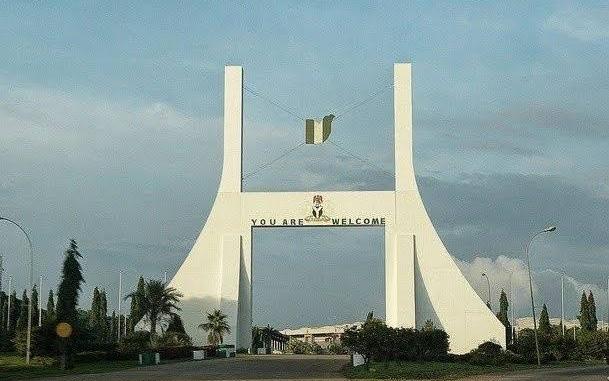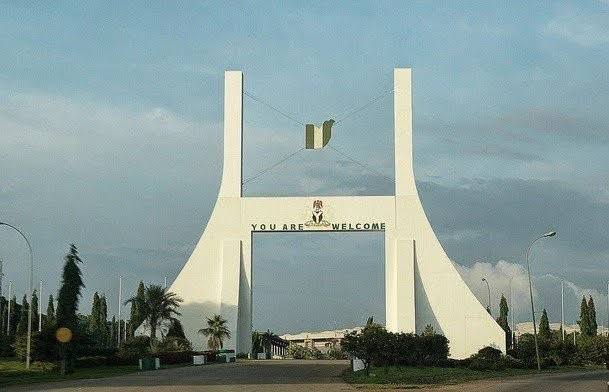
August 9 every year is observed by the United Nations as the International Day of the World’s Indigenous Peoples. The Day is observed to celebrate the achievements of indigenous peoples around the world and highlight their struggles, as well as what governments, and societies can do to address the plights of these marginalized peoples. For Nigeria, the commemoration of the 2022 UN International Day of World’s Indigenous Peoples holds a lot of significance, especially in the face of rising outcry from the Original Inhabitants in the Federal Capital Territory (FCT). The indigenous peoples in the space occupied by the Nigerian capital have continued to agonise about what they have variously described as the injustice they have suffered in the hands of the Nigerian State.
Although the theme of this year’s UN Indigenous Day celebration focuses on the role of indigenous women in the transmission of local knowledge, Original Inhabitants in the FCT at different convening to mark the day have also tried to focus the narrative on the broader historic injustices, marginalization, and exclusion which have been a part of their experiences. Since being made to part with their lands to make way for Nigeria’s capital city over four decades ago, FCT Original Inhabitants insist that their human rights have been consistently trampled upon, just as promises made to them have not been fulfilled, over forty years after. One of the promises made by the then Supreme Military Council headed by the Head of State, late General Murtala Mohammed in 1976 was that following the acquisition of their lands, Original Inhabitants would be resettled outside the territory at government’s expense.
Many FCT Original Inhabitants have expressed disappointment that those lofty promises have not been fulfilled, just as they have accused the government of unjustly abandoning them to live in penury after the compulsory acquisition of their lands without compensation. FCT Original Inhabitants have equally agonised over how the government’s failure to fulfil its’ side of the bargain has left them landlessness, statelessness, and excluded from the commanding heights of decision making in the country. In the first place, having taken over the lands in the territory without compensation, and with no robust efforts at resettling them, FCT Original Inhabitants have condemned the government for rendering them economically prostrate. They have similarly stressed that being deprived of their prime lands without any prior and informed consent has also had a devastating effect on their cultural treasures and repositories.
The 1999 Constitution as amended has also been implicated as one of the major sources of enabling the perpetuation of the decades-long injustices and marginalisation suffered by FCT Original Inhabitants. Section 297(2) of the 1999 Constitution as amended states that the “ownership of all lands comprised in the Federal Capital Territory shall vest in the Government of the Federal Republic of Nigeria,” but the same constitution is silent about the people who were existing on the land before the coming of the capital. Many FCT Original Inhabitants have interpreted the silence about their existence in the entire constitution to mean that there were no pre-existing indigenous population in the area before the acquisition of the lands in the territory by the government.
Section 299 in the eyes of FCT Original Inhabitants goes on to add insult to injury by stating that the “provisions of this Constitution shall apply to the Federal Capital Territory, Abuja as if it were one of the States of the Federation; and accordingly (a) all the legislative powers, the executive powers and the judicial powers vested in the House of Assembly, the Governor of a State and in the courts of a State shall, respectively vest in the National Assembly, the President of the Federation and the courts which by virtue of the foregoing provisions are courts established for the Federal Capital Territory, Abuja.”
These sections of the nation’s grundnorm, which have been variously described as “satanic” by FCT Original Inhabitants activists collectively, deny Original Inhabitants the kind of sub-national representation, which Nigerians in other states enjoy. The reality of the Original Inhabitants in the FCT is further worsened by the lack of robust representation in the core structures of governance, responsible for service delivery. The Minister of the FCT for instance is an appointee of the President. In the absence of any rule compelling the President to appoint a representative from the Original Inhabitants, political considerations are mostly prioritized, leading to the exclusion of the indigenes of the city. Unlike other citizens of Nigeria in various states who have the right to vote in a Governor and a State House of Assembly, the FCT Original Inhabitants have been denied such by the Constitution.
Sadly, decades of calls to reform this constitutional lacuna have been ignored. Rights activists have thus implicated these constitutional gaps as being responsible for the neglect, poverty, and deprivation apparent in the Original Inhabitants communities, located in the backwaters, which are not too far from the beautiful Abuja City Centre. Many of such communities cannot boast of potable water, sanitation, and hygiene facilities. In these Original Inhabitants communities also, education facilities are few and decrepit health facilities, making them susceptible to outbreak of various preventable diseases.
Attempts by Original Inhabitants in the FCT to take advantage of the rule of law to advance their rights have been repudiated. This is largely due to the culture of impunity and disrespect for the rule of law, which pervades Nigeria’s national space. For instance, despite the unwavering commitment, which FCT Original Inhabitants have demonstrated to upholding peaceful, lawful and non-violence in their search for justice, the Nigerian authorities have always frustrated and undermined these efforts. It has become so bad that even judicial verdicts handed down by courts of competent jurisdictions have been simply ignored by successive governments. It is against this background that human rights groups have called on the government to listen to the cries of FCT Original Inhabitants and ensure their issues are addressed.
One of such groups is the Resource Centre for Human Rights & Civic Education (CHRICED), which has been working with support of the John D. and Catherine T. MacArthur Foundation to build the organisational program and financial management capacity of FCT Original Inhabitants Organisations. The project is aimed at addressing the decades-long injustices, marginalization and exclusion suffered by the Original Inhabitants in the FCT since the relocation of Nigeria’s capital from Lagos to Abuja by virtue of Decree No 6 of 1976. With the support of the John D. and Catherine T. MacArthur Foundation, CHRICED has been supporting Original Inhabitant groups to develop initiatives to address pressing political, socio-economic, and cultural challenges facing them, foster opportunities for engagement with policymakers, and advocate reforms to promote inclusion, equity, and equality for the Original Inhabitants in FCT.
An important aspect of the two-year project is the urgent need to internationalise the stories and struggles of FCT Original Inhabitants. It is pertinent to state that despite the over four decades of marginalisation, exclusion and repression suffered by FCT Original Inhabitants, since their ancestral lands were taken over to make way for the Nigerian capital, not many within and outside the shores of Nigeria know about their plight and struggles. And because there is little knowledge and awareness about the injustices suffered by the Original Inhabitants, there is a dearth of initiatives to support them in seeking redress.
Subsequently, the lack of awareness about the plight of FCT Original Inhabitants is also apparent at the continental level, where Nigeria projects itself as a giant. At the regional level, the issue of the injustice done to Original Inhabitants of the FCT has similarly received scant and perfunctory attention. The result is that there have been no broad continental activities to connect the issues confronting the FCT Original Inhabitants to the struggles of other indigenous peoples on the African continent. The ongoing project of promoting the Rights of the Original Inhabitants in the FCT seeks to make the issue a subject of international conversation. This way, the authorities in Nigeria may be influenced to bring an end to the paradox of a people who made enormous sacrifices for the unity of Nigeria, becoming refugees in their ancestral lands.
Ajanaku is the Programmes & Communications Manager, Resource Centre for Human Rights & Civic Education (CHRICED)
